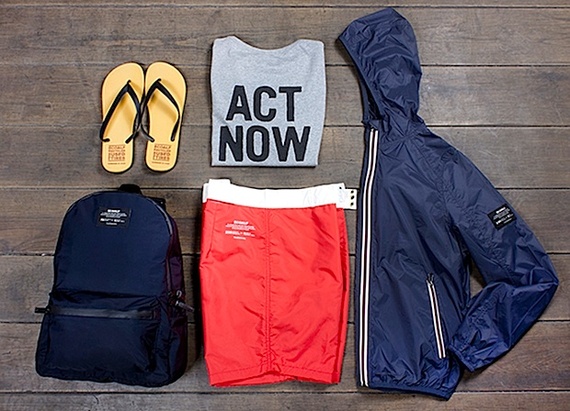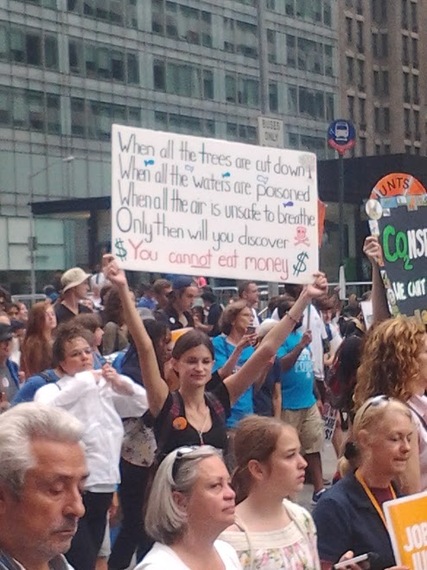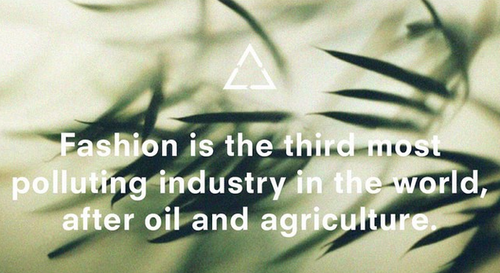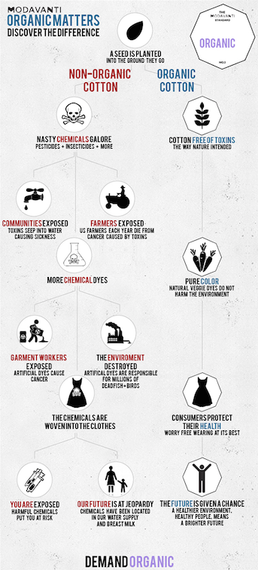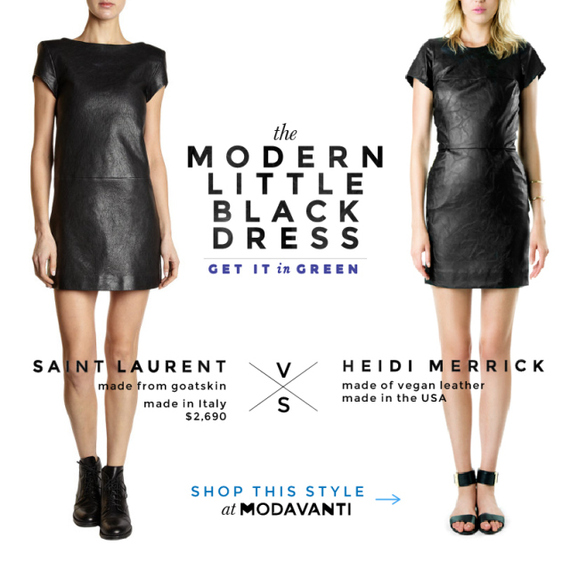Several friends and I stood in awe as we watched Sunday's climate change parade snake by us from our perch in Bryant Park. For more than three hours we cheered thousands of marchers from all over the country. We marveled at their passion and dedication as many traveled more than 15 hours to be part of what this publication is calling the largest climate change march in history. The atmosphere was electric and gave hope to the belief that the citizens of this country are ready to tackle climate change head on. Our moods dampened when one of our more aggravating friends pointed out that by traveling great distances, the marchers were contributing to climate change by emitting thousands of pounds of CO2. We objected, arguing that it was the spirit of the day that was more significant. Yet, there was no denying his point. It is the hardest hypocrisy to reconcile for those of us who care about living consciously.
No matter how we meticulously we separate our recycling or how mindful we are in eating locally sourced foods, as conscious consumers there is always friction between our values and the realties of modern living. There are no biodegradable iPads, no solar powered planes and until Tesla turned the car industry on its head, no practical electric cars.
There is however one field in which we can make a significant impact: fashion.
In the fight against climate change rarely is what we wear mentioned as part of the solution. Sustainable fashion has been a huge missed opportunity because it is one of the easiest ways we can live our values. It is unreasonable to expect someone to skip work because they can't afford a Tesla or to stay home on vacation because flying to Paris produces too much carbon emissions. These dilemmas are what the top scientists and engineers trying to resolve. But switching to an organic cotton t-shirt? Or buying Levi's jeans made from plastic water bottles (which are conveniently in the same store displays) instead of regular denim? These are easy, tangible ways that we can all wear our values.
Textile manufacturing is the third largest (agriculture and oil and gas) and second dirtiest industry (to oil and gas) in the world. Not only does the fast fashion industry generate an enormous amount of waste, it is also responsible for the millions of tons of harmful chemicals sprayed on our fields and dumped into our waterways. Carcinogens that don't just poison our planet but our people as well. We can't to ignore the implications of fast fashion. Out of sight out of mind doesn't work when it comes to protecting our environment.
In a world where clean water is scarce, it's appalling that it requires 700 of gallons to make one cotton t-shirt. By switching to organic cotton, not only do you reduce the amount of water required by up to 60 percent but organic cotton also lowers the amount of pollutants that poison our waterways by as much as 98 percent.
And what about the billions and billions of plastic water bottles floating in our oceans? Last spring, Levi's converted 3.5 million water bottles into premium high-quality jeans. That's just the beginning. Dozens of brands are finding ways to reuse plastic to beautiful sustainable products. Through organic cotton, clean vegetable dyes, zero-waste manufacturing and dozens of other techniques designers are employing to be more sustainable, brands are rising to the challenge to tackle climate change.
For too long the complexities of modern life have made living responsibly an
abstract notion debated by scientists and academics. Today, with a multitude of designers and notable sustainable fashion retailers, voting with our wallets is as tangible and easy as ever before. We as a nation must turn the passion and energy on display in the streets of Manhattan into action. Making a meaningful difference starts on a small scale. Why not start with something that we use every day in an industry that needs it most? It's time to #wearwhatmatters.

